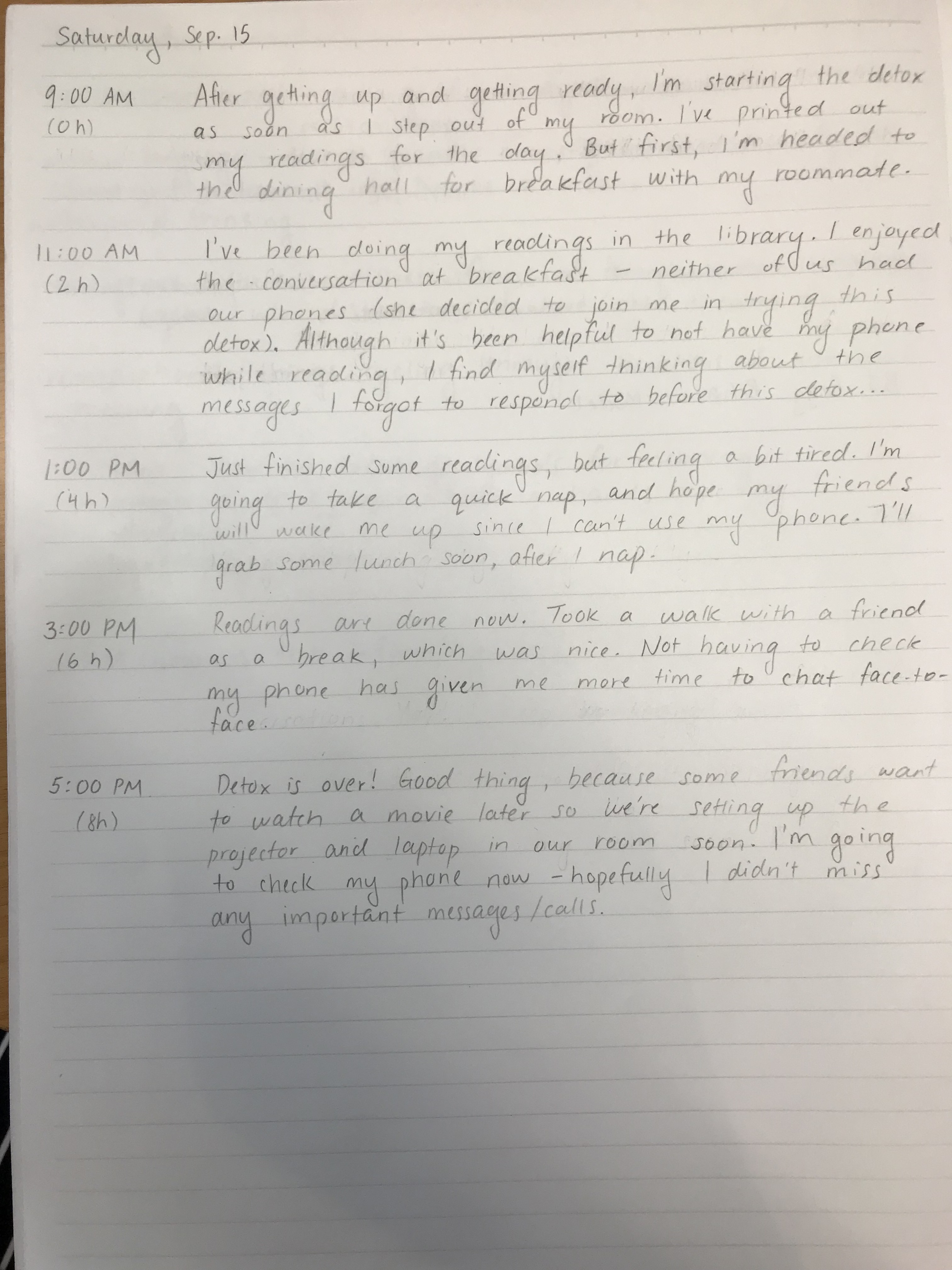I was looking forward to doing this digital detox, as I’ve done it before and I remembered how refreshing it can be to unplug and disconnect for a little while. This time was no different. What added to the experience was the fact that one of my friends decided to join me in this exercise, as she was eager to try it out upon hearing me describe what the detox would entail.
Since I’ve done such a detox before, I didn’t find the experience too difficult. I wouldn’t consider myself to be someone who’s addicted to technology, as I don’t really use too many apps. I do, however, spend a lot of time on the Internet or on messaging platforms. Thus, being disconnected encouraged me to be more aware of each activity I was doing – whether it was enjoying the taste of my food, or relishing the company of friends. Sometimes, though, my mind would wander to think about the emails/messages I needed to reply to, wondering what others must be thinking if I didn’t respond promptly. The absence of communication technologies made me realize how easy it is to get distracted by our devices which pull us away from the present, from the very people and things that surround us. Overall, this experiment helped me consider how strongly technology demands my attention and time.
In the dystopian world of the short story “The Machine Stops,” people have become so dependent on the Machine for their daily needs and desires, to the point of worshipping it. Moreover, they prefer to remain in the comfort of their assigned rooms – anything to avoid the “terrors of direct experience,” of direct contact with others or with the outside world.
This fear of person-to-person interaction and increasing reliance on technology is, sadly, a reality we have come to embrace. In “Reclaiming Conversation,” Sherry Turkle highlights certain patterns of social problems that have developed as a result of our digital culture. We have traded conversation for mere connection, preferring the easy, editable platforms of online communication over the unpredictable circumstances of face-to-face conversation. In this “flight from conversation,” we’ve retreated into the safety of our technology. As a consequence, conversations are fragmented, and there is a decline in our empathic abilities. Perhaps we should all take a digital detox more often? Freeing ourselves from the “seductive undertow” of our technology, we can take the time to truly reconnect with ourselves, and with one another.
